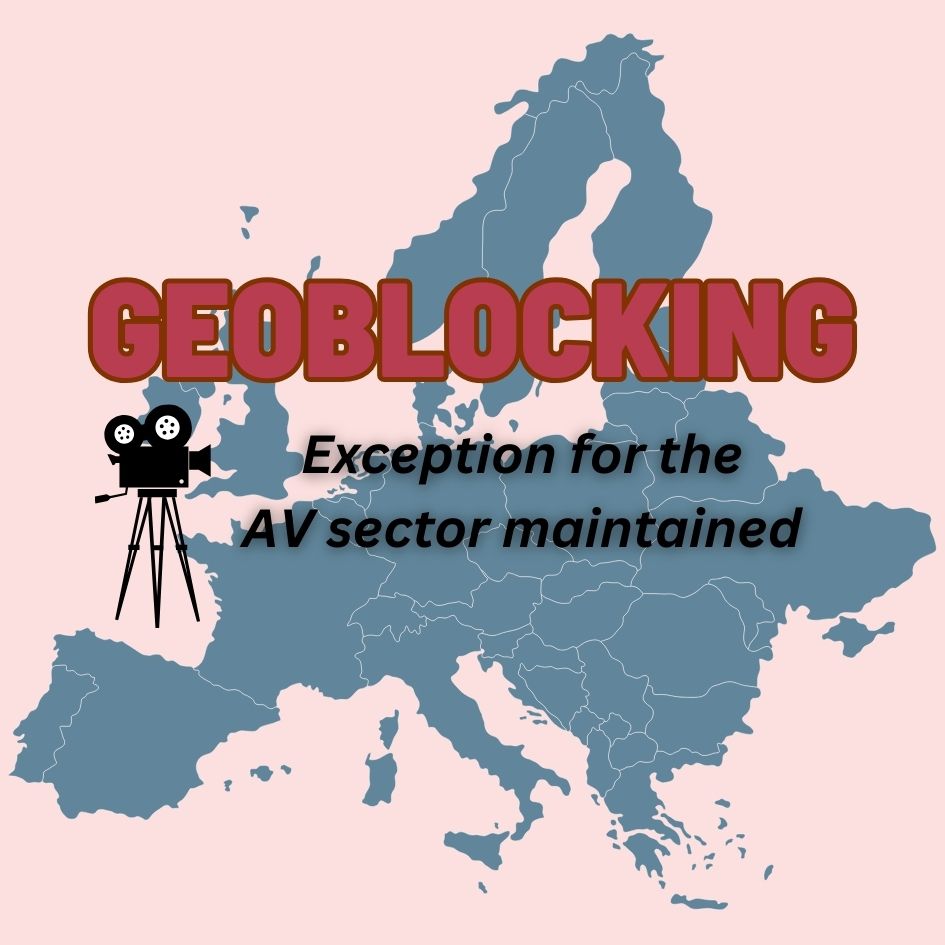
EU Parliament adopts amended version of implementation report on 2018 Geo-blocking Regulation supportive of audiovisual cultural diversity

On 13 December 2023, the European Parliament adopted a resolution on the implementation of the 2018 Geo-blocking Regulation in the digital single market (2023/2019(INI)), drafted by Member of the European Parliament and rapporteur Beata Mazurek (ECR, Poland).
While the current 2018 Geo-blocking Regulation features an exception for audiovisual services, Beata Mazurek’s draft report initially called for a ban on the use of geo-blocking technology to support territorial exclusivity for film and audiovisual content and services. This would present a serious threat to the creative and economic sustainability of the film and audiovisual sector across Europe. As former FERA President Agnieszka Holland put it on a related event, “without territorial exclusivity there would be less coproduction. Without coproduction, film auteurs from smaller European countries would not have a voice”.
Plenary amendments were subsequently tabled to secure the continued exclusion of audiovisual services from the Geo-blocking Regulation. Following audiovisual stakeholders’ wide mobilization across Europe, including through the joint call by over 700 organisations on Members of the European Parliament to protect the principle of territorial exclusivity and Europe’s cultural diversity by amending the text in plenary, a number of such positive amendments were inserted in the final text adopted by 376 votes in favour to 111 against and 107 abstentions.
FERA welcomes this outcome and will continue to advocate with the audiovisual sector stakeholders’ community for the continued exclusion of audiovisual services from the scope of this Regulation banning unjustified geo-blocking.
To go further:
1) European Parliament press release “MEPs want to revise EU geo-blocking rules to eliminate remaining barriers”
2) European Parliament resolution of 13 December 2023 on the implementation of the 2018 Geo-blocking Regulation in the digital single market
